Pumpkin is a versatile ingredient used in various dishes and boasts numerous health benefits. Let’s explore the calorie content of pumpkins, their nutritional value, and how they can impact weight loss or gain.
1. Pumpkin Calories:
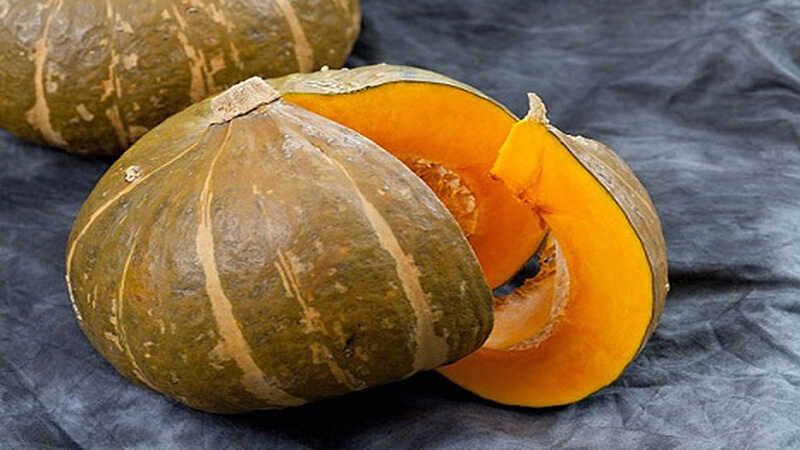 How Many Calories in a Pumpkin?
How Many Calories in a Pumpkin?
Pumpkin is a nutritious food with multiple culinary uses. According to the United States Department of Agriculture (USDA), 100 grams of pumpkin contains 26 calories.
Here’s a breakdown of pumpkin calories in different servings:
-
: 30 calories
-
1 cup of cooked pumpkin: 80 calories
-
100ml of pumpkin juice: 120 calories
-
1 bowl of pumpkin soup: 186 calories
-
1 plate of pumpkin salad: 130 calories
2. Health Benefits of Pumpkin:
According to Dr. Nguyen Thuong Hanh, a specialist in internal medicine at the Oncology Hospital, pumpkins offer the following health benefits:
Improves Eye Health:
 Improves Eye Health
Improves Eye Health
Pumpkin is rich in beta-carotene, which gets converted into vitamin A in the body. This nutrient is essential for eye health, promoting a healthy retina and better light processing.
Promotes Heart Health:
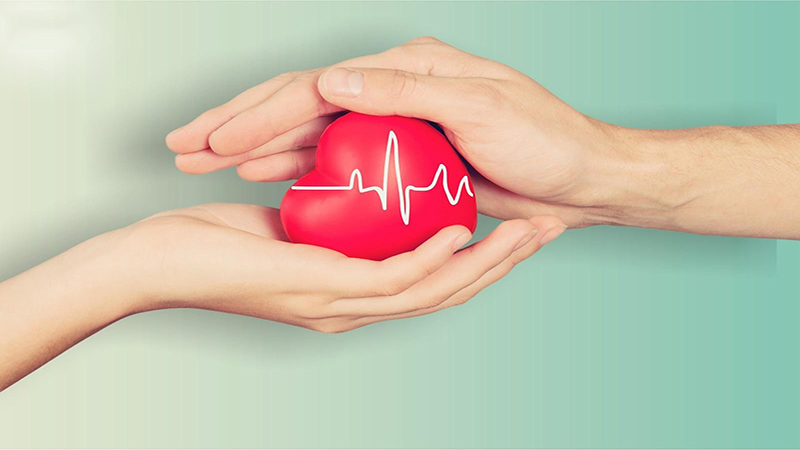 Promotes Heart Health
Promotes Heart Health
Pumpkin seeds contain phytosterols, which help reduce bad cholesterol and prevent cardiovascular diseases and hypertension.
Prevents Diabetes:
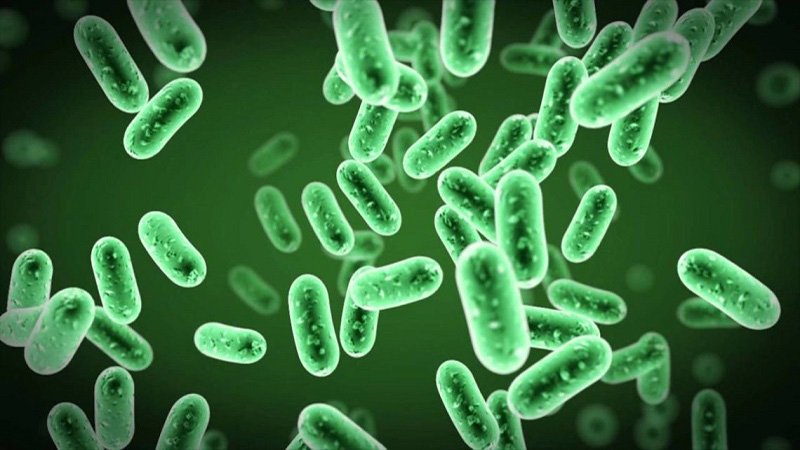 Prevents Diabetes
Prevents Diabetes
Consuming pumpkin helps lower blood sugar levels, making it beneficial for preventing diabetes. It also slows down the progression of the disease to its chronic stage.
Supports Brain Development:
 Supports Brain Development
Supports Brain Development
Pumpkin is a good source of glutamine, an essential amino acid that nourishes and supports the development of nerve cells.
Cancer Prevention:
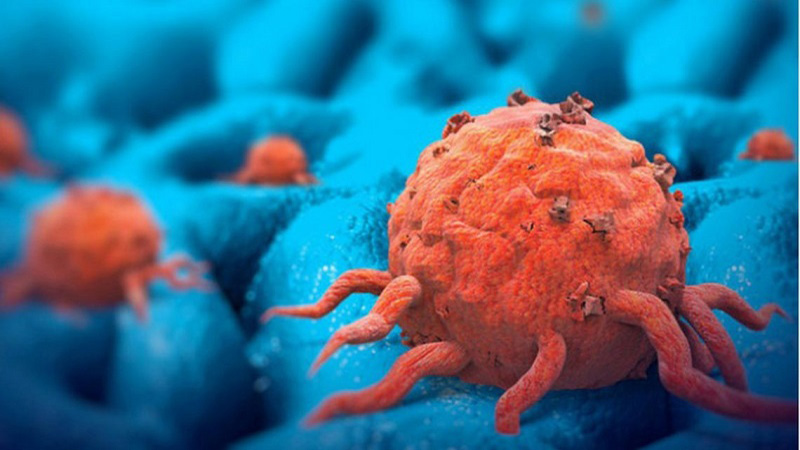 Cancer Prevention
Cancer Prevention
Pumpkin is rich in beta-carotene, which has been linked to a reduced risk of certain cancers and the inhibition of cancer cell formation.
3. Pumpkin for Weight Loss or Gain:
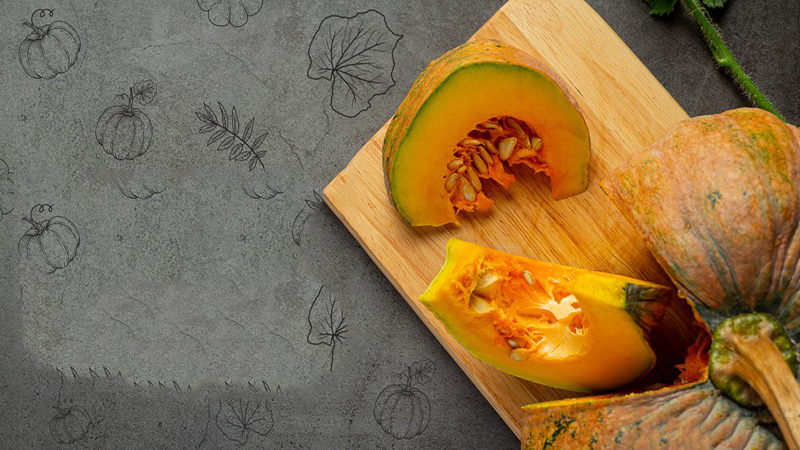 Can Pumpkin Help with Weight Loss or Gain?
Can Pumpkin Help with Weight Loss or Gain?
Pumpkin can aid in both weight loss and weight gain, depending on how it is consumed and the amount ingested daily.
4. Pumpkin for Weight Loss:
Can Eating Pumpkin Help Lose Weight?
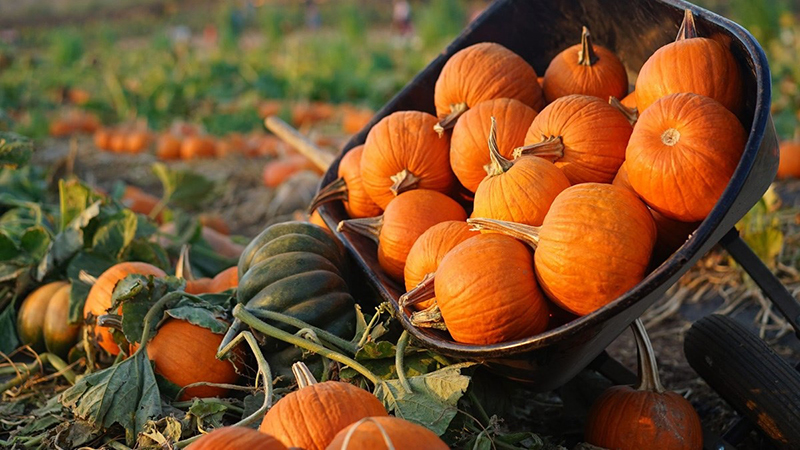 Can Eating Pumpkin Help Lose Weight?
Can Eating Pumpkin Help Lose Weight?
Yes, pumpkin can aid in weight loss due to its low-calorie content—approximately 26 calories per 100 grams. Additionally, pumpkin is rich in fiber, which helps you feel fuller for longer, curbs cravings, and slows down the absorption of glucose, thereby preventing fat accumulation.
Effective Ways to Eat Pumpkin for Weight Loss:
Pumpkin Soup: Pumpkin soup is a popular choice for weight loss as it is nutritious, flavorful, and filling without being heavy.
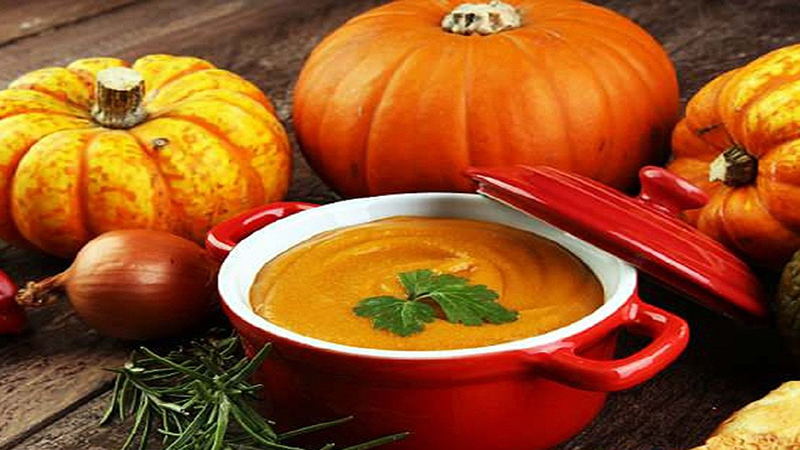 Pumpkin Soup
Pumpkin Soup
Grilled Pumpkin: Grilled pumpkin is a delicious and nutritious option, offering a unique flavor and aroma that makes it a satisfying and healthy choice.
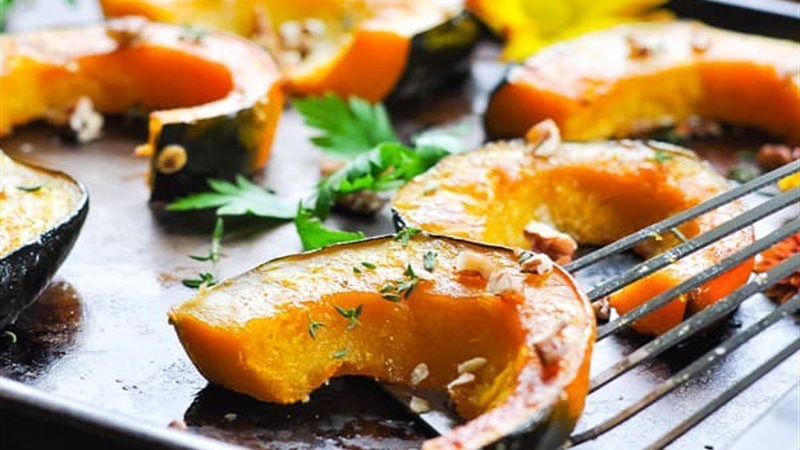 Grilled Pumpkin
Grilled Pumpkin
Boiled Pumpkin: A simple and familiar dish, boiled pumpkin is naturally sweet and nutty, making it a light and effective option for weight loss while providing essential nutrients.
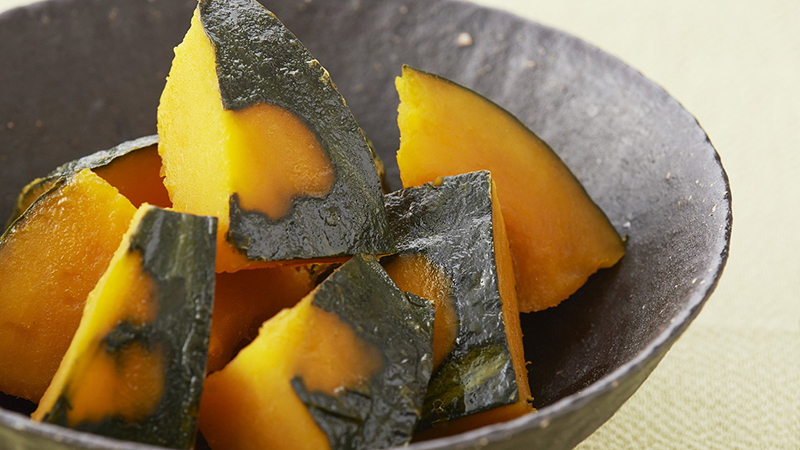 Boiled Pumpkin
Boiled Pumpkin
5. Pumpkin for Weight Gain:
Can Eating Pumpkin Help Gain Weight?
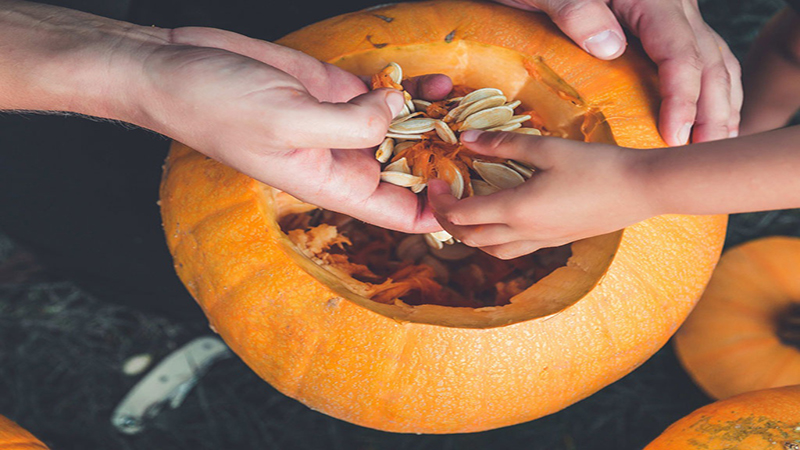 Can Eating Pumpkin Help Gain Weight?
Can Eating Pumpkin Help Gain Weight?
Pumpkin can help you gain weight healthily when consumed appropriately. This is why gym-goers often include pumpkin in their diets to achieve a fuller figure. With proper consumption, gaining 3-4 kg in a month is achievable.
Effective Ways to Eat Pumpkin for Weight Gain:
Pumpkin Milk: A delicious blend of pumpkin, milk, and other ingredients, pumpkin milk is a nutritious drink that provides energy and supports weight gain.
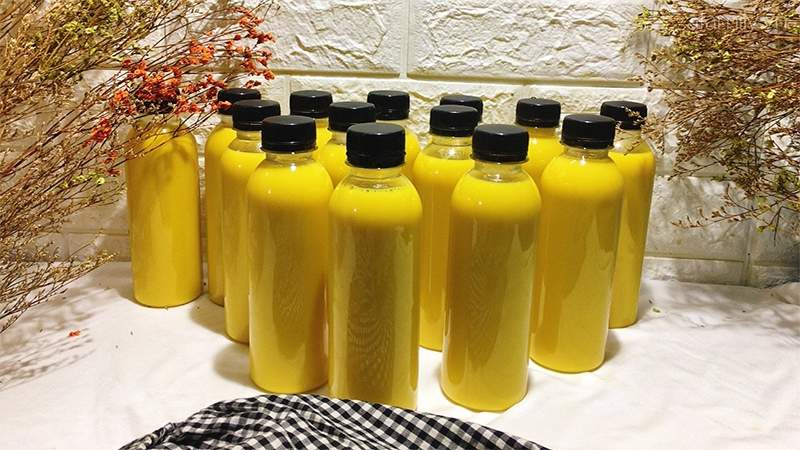 Pumpkin Milk
Pumpkin Milk
It has a mildly sweet and creamy flavor and is best consumed after lunch and dinner, about an hour before bedtime, for optimal results.
Pumpkin, Pandan Leaf, and Lotus Seed Milk: If you find yourself getting bored with plain pumpkin milk, try this variation with pandan leaf and lotus seeds.
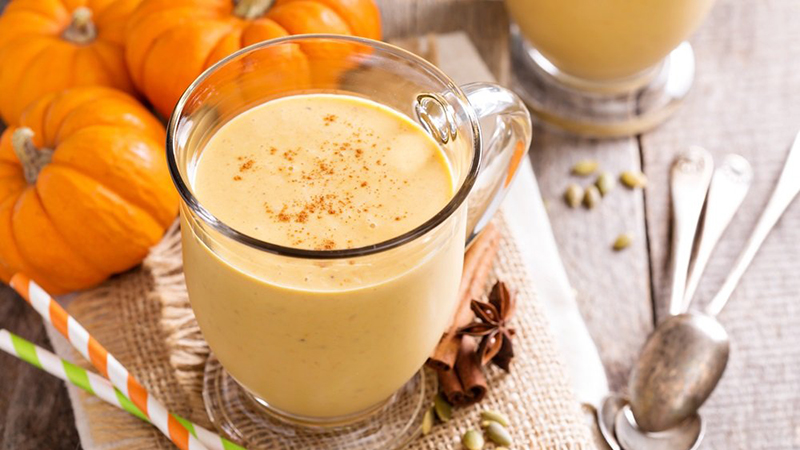 Pumpkin, Pandan Leaf, and Lotus Seed Milk
Pumpkin, Pandan Leaf, and Lotus Seed Milk
This drink offers the same benefits as pumpkin milk but with a delightful fragrance and flavor from the pandan leaf. It is a popular choice for those looking to control their weight gain effectively while staying energized.
6. Precautions When Consuming Pumpkin:
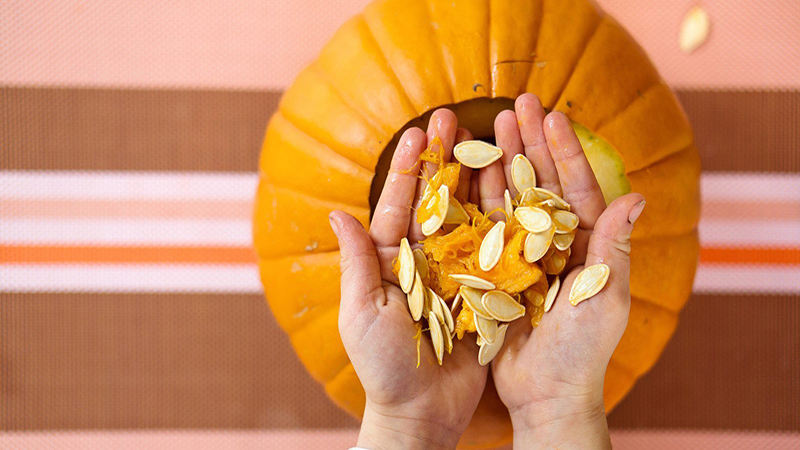 Precautions When Consuming Pumpkin
Precautions When Consuming Pumpkin
– Don’t Eat Pumpkin Continuously: Limit your pumpkin intake to 2 servings per week. Excessive consumption of pumpkin, which is high in provitamin A, can lead to a buildup of this nutrient in the liver, causing a yellow discoloration of the nose, palms, and soles of the feet.
– Avoid Pumpkin with Digestive Issues: Those with digestive problems should limit their pumpkin intake due to its high fiber content, which can exacerbate these issues.
– Avoid Old and Overripe Pumpkins: Pumpkins have a high sugar content, and storing them for extended periods can lead to anaerobic respiration and fermentation, affecting their quality and safety.
– Don’t Refrigerate Cooked Pumpkin: Storing cooked pumpkin in the refrigerator, especially the freezer, can cause it to turn a brownish-yellow color, indicating spoilage.
– All varieties of pumpkin, including , offer similar nutritional profiles. Feel free to choose any type of pumpkin to include in your daily diet.
We hope this information about pumpkins has been helpful. If you’re a pumpkin enthusiast, be sure to incorporate this versatile ingredient into your recipes.
Source: United States Department of Agriculture (USDA)































